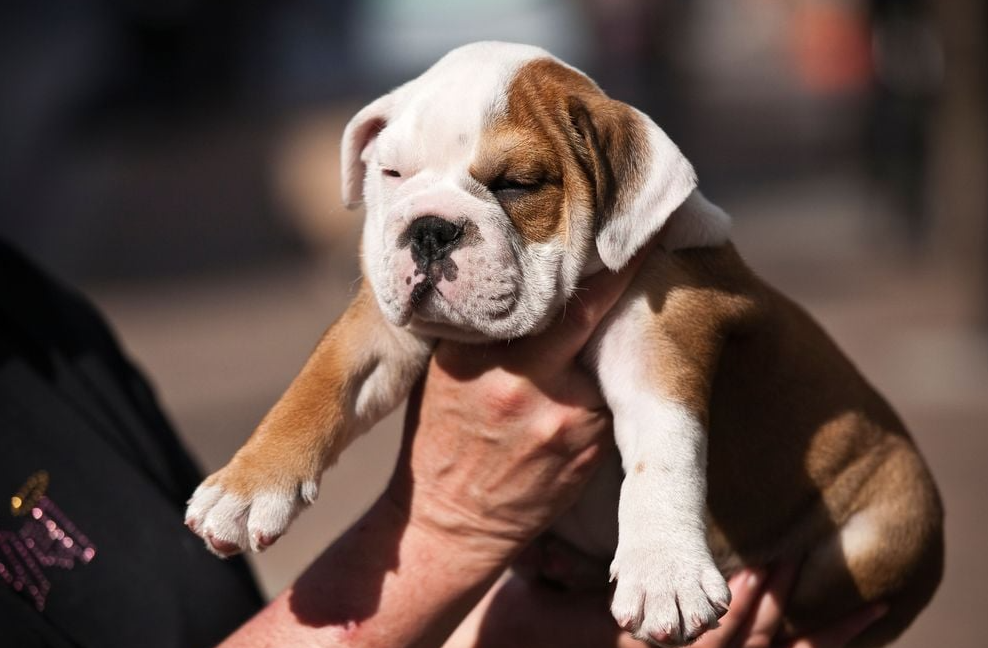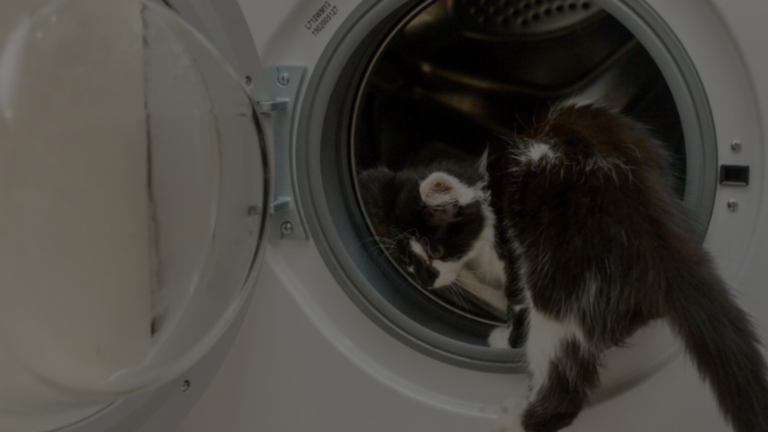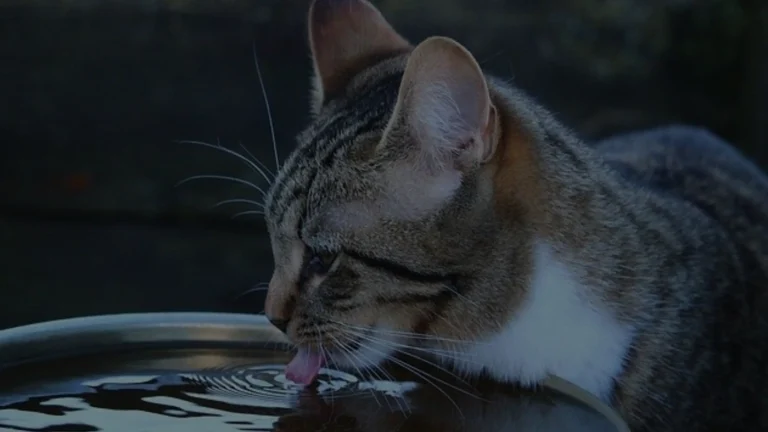While dogs are generally considered haram (forbidden), cats are viewed favorably and even encouraged as companions. We will delve into the historical and religious roots of this disparity, exploring the rationale behind these views and examining how modern interpretations and cultural shifts are shaping contemporary attitudes. To understand why are dogs haram but not cats, you need to know about some other things related to animals and Islam.

Bayt Al Fann
“Haraam” is an Arabic term used in Islam to denote actions or things considered forbidden or unlawful. These actions are believed to be displeasing to Allah and carry potential consequences in the afterlife. The concept of haraam is established through various sources, primarily:
- Quran: The holy book of Islam, believed to be the literal word of Allah. It explicitly prohibits certain acts and guides what is considered permissible and impermissible.
- Hadith: Sayings and actions attributed to Prophet Muhammad, viewed as a secondary source of Islamic law and providing further interpretation of the Quranic teachings.
- Ijtihad: The process of legal reasoning used by scholars to derive rulings on matters not explicitly addressed in the Quran or hadith.
Haraam encompasses a wide range of actions, including:
- Shirik: Associating anyone or anything with Allah in worship.
- Zina: Fornication and adultery.
- Riba: Unjust enrichment through usury or interest.
- Gambling: Engaging in games of chance for money.
- Consumption of alcohol and pork: Considered impurities and harmful to the body and soul.
- Lying, stealing, and violence: Actions that harm others and violate their rights.
The Traditional View on Dogs and Cats in Islam
The status of dogs and cats in Islamic traditions has historically been distinct, with differing interpretations and practices evolving. Understanding these historical perspectives helps us grasp the roots of contemporary attitudes and appreciate the diversity of interpretations within Islam.
Dogs in Islam

Physical Purity
The traditional view of dogs centers around the concept of ritual purity (taharah). Dog saliva is considered najis (impure), and contact with it necessitates specific cleansing rituals before performing prayers. This association with impurity stems from hadiths that mention dogs being unclean and carrying diseases.

Restrictions on Ownership
Traditionally, keeping dogs as pets was discouraged, with exceptions for specific purposes like hunting, guarding livestock, or assisting people with disabilities. These exceptions were based on the principle of necessity and the potential benefit derived from dog ownership.
Hadiths and Quranic References
While the Quran doesn’t explicitly mention dogs as unclean, certain hadiths provide the basis for the traditional view. For instance, one hadith mentions that if a dog drinks from a utensil, it must be washed seven times. Another mentions angels not entering a house with a dog inside.

Cats in Islam
Perceived Cleanliness
Unlike dogs, cats are viewed as clean animals in Islamic tradition. Their natural grooming habits and aversion to physical contact are seen as contributing to their purity. This positive perception is reflected in hadiths that describe the Prophet Muhammad’s affection for cats.
Allowed as Companions
Keeping cats as pets has always been accepted and even encouraged in Islamic tradition. Cats were valued for their ability to control pests and their calming presence in the household. Some hadiths even mention virtues associated with cats, such as their mindfulness and cleanliness.
References in Quran
The Quran itself mentions cats in a positive light. In the Surah An-Naml, Prophet Moses’s staff is transformed into a serpent to frighten a cat, ultimately protecting it from harm. This example highlights the inherent respect and protection accorded to cats within Islamic teachings.

It’s important to remember that these traditional views are not monolithic and have evolved. Contemporary interpretations and cultural contexts influence how these principles are applied in everyday life.
While the traditional views on dogs and cats in Islam provide a foundation, diverse interpretations, and evolving perspectives have emerged over time, influenced by modern contexts and a growing awareness of animal welfare.
Variations in Rulings
- Schools of Thought: Different Islamic schools of thought have varying interpretations of the hadiths and their application to dog ownership. For example, Hanafi and Maliki schools allow the keeping of hunting dogs, while Shafi’i and Hanbali schools generally discourage it. This diversity demonstrates the flexibility and room for interpretation within Islamic law.
- Cultural Influence: Cultural practices and local interpretations also play a role in shaping attitudes towards dogs. In some regions, dog ownership is widely accepted, while others remain more hesitant due to traditional beliefs. This highlights the dynamic nature of Islamic interpretations and their adaptability to different contexts.
Modern Interpretations

Bayt Al Fann
- Animal Welfare: Rising awareness of animal welfare has led to reevaluations of the traditional views on dogs. Some scholars emphasize the importance of treating all creatures with compassion and fulfilling their needs regardless of their perceived purity.
- Scientific Understanding: Modern scientific understanding of disease transmission and hygiene practices has challenged some of the traditional concerns around dog saliva and impurity. This has led to a more nuanced understanding of the concept of purity and its application to interactions with animals.
- Pet Ownership Benefits: The psychological and emotional benefits of pet ownership are increasingly recognized, prompting some Muslims to reconsider the traditional prohibitions on dog ownership. They emphasize the potential for dogs to provide companionship, reduce stress, and promote physical activity.
Shifting Attitudes
- Growing Acceptance: In many Muslim communities worldwide, dog ownership is becoming increasingly accepted. This shift is fueled by a combination of factors, including exposure to Western cultures, increased urbanization, and changing lifestyles.
- Open Dialogue: The topic of dog ownership is being openly discussed and debated within Muslim communities, leading to greater understanding and acceptance of diverse perspectives.
- Finding Common Ground: While some Muslims continue to adhere to traditional perspectives, others are seeking ways to reconcile their faith with their desire to own dogs. This search for common ground often involves emphasizing the importance of responsible pet ownership and ensuring the well-being of animals.
The evolving landscape of interpretations and modern perspectives highlights the dynamic nature of Islamic teachings and their adaptability to changing contexts. It also underscores the importance of open dialogue, mutual respect, and a compassionate approach towards all creatures.
How Pre-Existing Health Conditions Can Amplify Bath-Time Risks
The Importance of Respecting Diversity of Views and Practices
As we have explored the different interpretations and modern perspectives on the status of dogs and cats in Islam, it’s crucial to emphasize the importance of respecting the diversity of views and practices within the Muslim community. This respect fosters understanding, promotes dialogue, and ultimately strengthens the Islamic faith.
Recognizing Diversity
- Variety of Interpretations: Islamic law allows for diverse interpretations of religious texts and traditions. Different schools of thought and individual scholars may reach different conclusions on matters like dog ownership, reflecting the richness and flexibility of Islamic jurisprudence.
- Cultural Context: Cultural norms and local customs play a significant role in shaping how Islamic principles are applied in everyday life. Respecting these variations allows for a more inclusive and adaptable approach to Islamic teachings.
- Personal Choices: Ultimately, individual Muslims have the right to make informed decisions based on their understanding and interpretation of Islamic teachings. This freedom of conscience fosters a sense of personal responsibility and spiritual growth.
Promoting Dialogue
- Open Communication: Open and respectful dialogue around sensitive topics like dog ownership allows individuals to share their perspectives, learn from one another, and build bridges between different viewpoints.
- Critical Thinking: Engaging in critical thinking and examining the basis for traditional views encourages a deeper understanding of Islamic teachings and their relevance in contemporary society.
- Learning from Shared Experiences: Sharing personal experiences and stories related to pets can foster empathy and understanding across diverse perspectives.
Strengthening Faith
- Focusing on Core Values: By focusing on the core values of Islam, such as compassion, respect for all creatures, and seeking knowledge, individuals can find common ground despite differences in specific rulings or practices.
- Promoting Inclusiveness: Embracing diversity and respecting different interpretations strengthens the bonds within the Muslim community, leading to a more inclusive and welcoming environment for all.
- Individual Responsibility: The freedom to choose and interpret Islamic teachings fosters a sense of individual responsibility, encouraging Muslims to develop their relationship with their faith and practice it in a way that feels authentic to them.

Bayt Al Fann
Respecting diverse views and practices is not about accepting everything blindly, but rather about fostering a space for open dialogue, critical thinking, and mutual understanding. This approach allows individuals to grow in their faith, strengthen their community, and ultimately contribute to a more inclusive and compassionate world.
Conclusion
The differing status of dogs and cats in Islamic traditions presents a fascinating and complex topic. Exploring the historical roots, traditional views, and modern interpretations allows us to gain a deeper understanding of this issue and appreciate the diversity of perspectives within Islam.
While there is no single, definitive answer to the question of why dogs are haram but not cats, the journey of exploring this question has yielded valuable insights. We have seen how traditional views were shaped by religious texts, cultural practices, and evolving scientific understanding. We have also witnessed the emergence of modern interpretations that emphasize animal welfare, responsible pet ownership, and the importance of individual choice.

Ultimately, the issue of dog ownership in Islam is a reminder of the dynamic nature of Islamic teachings and their adaptability to changing contexts. It highlights the importance of open dialogue, mutual respect, and a compassionate approach towards all creatures. By acknowledging diverse perspectives and engaging in critical thinking, we can continue to find common ground and build a more inclusive and understanding community within Islam.
Let this exploration serve as a springboard for further discussion and reflection. As we continue to learn and grow together, we can strive to create a world where all creatures are treated with respect and compassion, regardless of their perceived purity or religious significance.
Resources & References
Quran
Hadiths
- Sahih al-Bukhari, 2:224; 7:271
- Sahih Muslim, 2365
- Sunan Abi Dawud, 132
- Jami` at-Tirmidhi, 143
- Musnad Ahmad ibn Hanbal, 6:405
Scholarly Articles
- Dogs in ancient Islamic culture
- ON DOGS IN THE ISLAMIC TRADITION
- Religion and Animal Welfare—An Islamic Perspective
- Animal Ethics in Islam: A Review Article
- “Animals in Islam” by Osman Bakar
- IslamQA: https://islamqa.info/en/answers/377/ruling-on-having-a-dog
- Islamic Relief: https://islamic-relief.org/
- Islamic Views on Dogs – Wikipedia
- Animals in Islam – The Humane Society
- The Cat in Islamic History – The National
- Caring for Pets in Islam: A Guide for Muslim Pet Owners
Note: This list is not exhaustive and is intended to provide a starting point for further research. It is important to consult with qualified scholars and religious authorities for guidance on specific rulings and interpretations.
Recommended Articles
ANIMAL ETHICS: AN ISLAMIC PERSPECTIVE (PDF)
 Loading...
Loading...FAQs – Why Are Dogs Haram but Not Cats
Is keeping a dog haram?
Yes, keeping a dog as a pet is haram in Islam, except for working dogs such as guard dogs, hunting dogs, and herding dogs.
Why are dogs considered haram?
There are a few reasons why dogs are considered haram in Islam. One reason is that they are seen as ritually impure. Another reason is that they are often associated with negative qualities such as scavenging and aggression.
Are cats haram?
No, cats are not haram in Islam. The Prophet Muhammad (peace be upon him) was known to love cats.
Why are cats not haram?
There is no specific reason given in the Quran or Hadith why cats are not haram. However, some scholars believe that it is because cats are cleaner animals than dogs and are less likely to transmit diseases.
Can I keep a dog as a pet if I am a Muslim?
If you are a Muslim, you are only allowed to keep a dog as a pet if it is a working dog such as a guard dog, hunting dog, or herding dog.
What should I do if I have a pet dog?
If you have a pet dog and you are a Muslim, you should either find a new home for the dog or keep it as a working dog.







